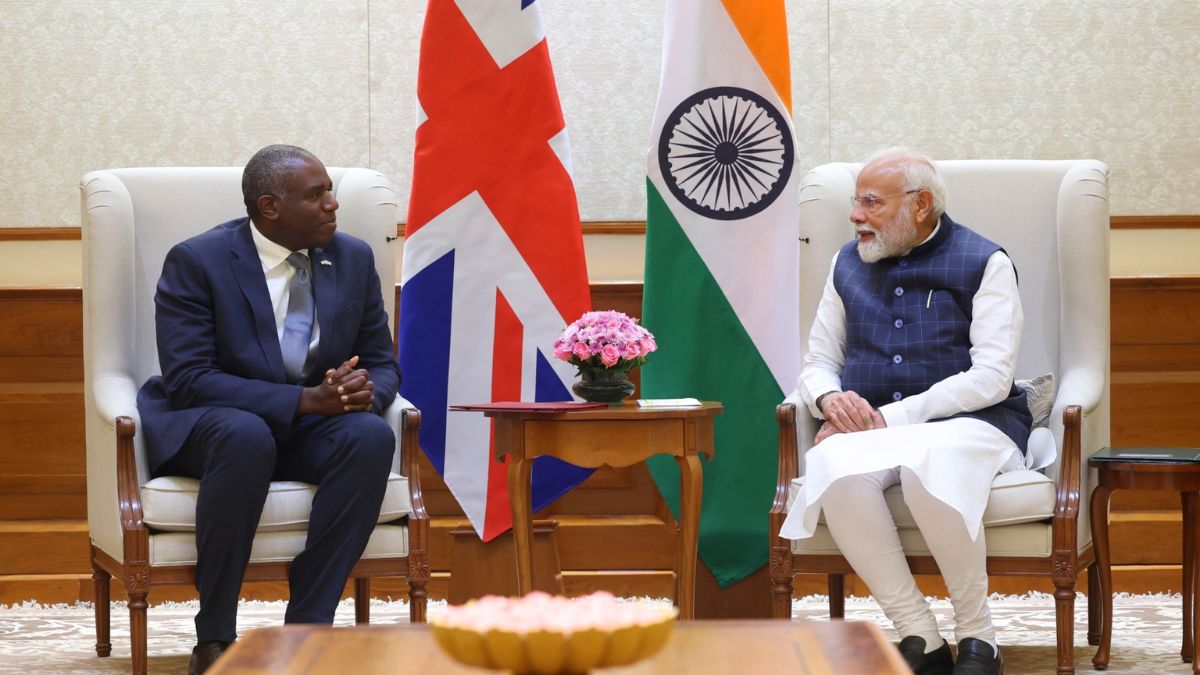

UK Foreign Secretary David Lammy's recent visit to India has underscored the strengthening ties between the two nations, with a particular focus on counter-terrorism cooperation and the recently concluded Free Trade Agreement (FTA). The meetings, which included discussions with Prime Minister Narendra Modi and External Affairs Minister S. Jaishankar, signal a new era of collaboration across various sectors.
A key aspect of Lammy's visit was the emphasis on combating terrorism. Prime Minister Modi called for decisive global efforts to tackle terrorism and those who enable it. This call to action came against the backdrop of the UK's strong condemnation of the recent terror attack in Pahalgam, Jammu and Kashmir. Lammy conveyed the UK's firm support for India's fight against cross-border terrorism, echoing the sentiment that the international community needs to act collectively against this global threat. Both leaders acknowledged the fragility of the regional security situation and reiterated their commitment to working together on counter-terrorism measures. Discussions also included combating the financing of terrorism, enhancing cooperation between law enforcement and judicial bodies, and improving information sharing.
Beyond security concerns, the successful conclusion of the India-UK Free Trade Agreement (FTA) was a major highlight. Both Modi and Lammy celebrated the FTA as a landmark achievement that promises to unlock new economic opportunities for both countries. The FTA, finalized after three years of negotiations, is projected to boost bilateral trade by £25.5 billion and increase UK GDP by £4.8 billion annually in the long run. It is also expected to support India's ambition to become the world's third-largest economy by 2028.
The FTA is comprehensive, covering not only goods and services but also digital trade, government procurement, intellectual property, labor, gender, anti-corruption, and environmental standards. A significant aspect of the agreement is the sweeping tariff reductions. India has agreed to reduce or eliminate tariffs on 90% of product lines for UK exports, with 85% becoming fully tariff-free within a decade. This includes immediate and staged reductions on key UK exports such as Scotch whisky, automotive products, medical devices, cosmetics, aerospace components, and food and drink. The UK, in turn, will eliminate tariffs on 99% of Indian goods, including clothing, footwear, processed foods, jewelry, and a wide array of manufactured products.
The FTA also addresses services and investment, with UK financial and professional services firms set to benefit from guaranteed market access and non-discriminatory treatment in India. For instance, the agreement locks in India's foreign investment cap for the insurance sector at 74%. The FTA is expected to make it quicker, cheaper and easier to trade, reducing red tape and cutting tariffs from the first day it comes into force. As soon as the deal comes into force, 64% of tariff lines will be eligible for tariff-free imports into India, covering £1.9 billion of current UK exports to India.
During the meetings, Lammy expressed the UK's keen interest in deepening cooperation across key sectors such as defense, security, trade, clean energy, technology, and innovation. Modi also lauded the growing strength of the India-UK Comprehensive Strategic Partnership and praised the ongoing collaboration under the Technology Security Initiative, calling it a step toward building "trusted and secure innovation ecosystems". Modi extended an invitation to UK Prime Minister Sir Keir Starmer to visit India at the earliest mutual convenience, signaling the importance both nations place on their relationship. The India-UK FTA is expected to increase bilateral commerce by USD 34 billion annually starting in 2040. The bilateral trade is anticipated to double and reach USD 120 billion by 2030.